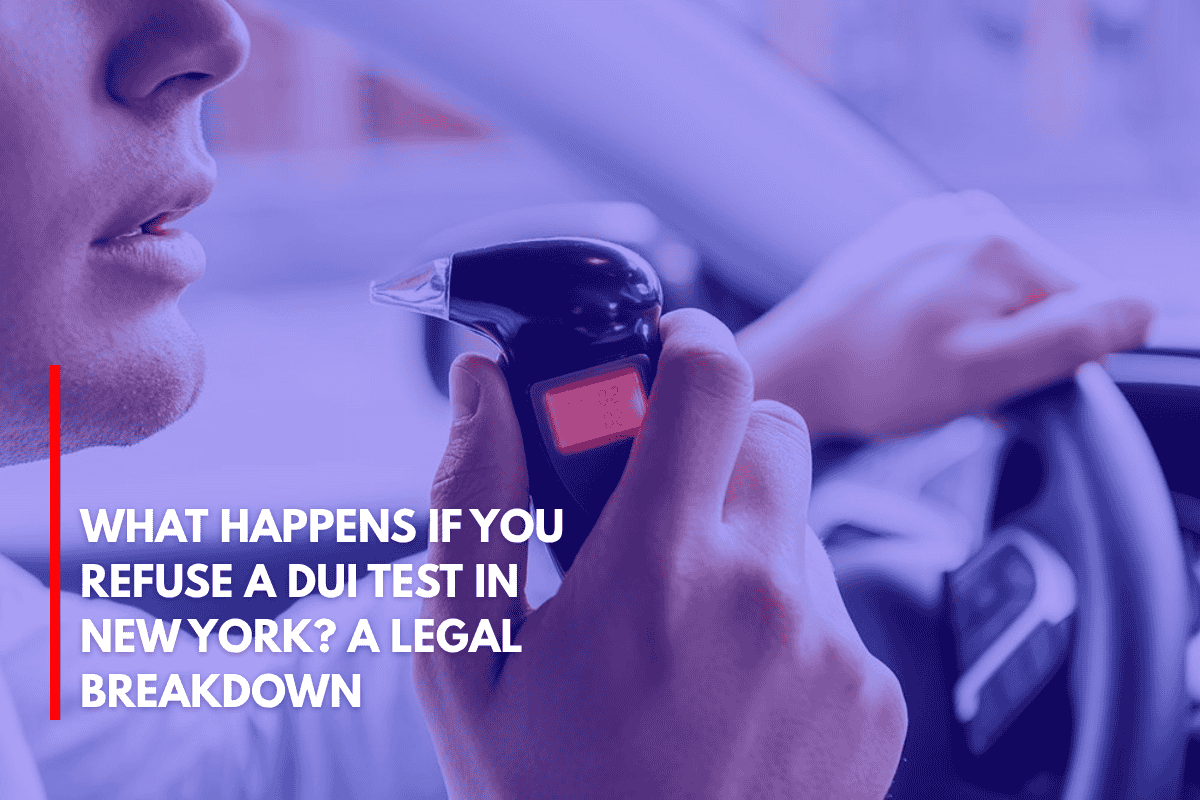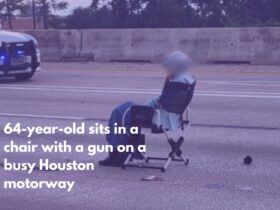If you refuse a DUI (or DWI) chemical test in New York, you will face significant legal consequences, even if you are never convicted of drunk driving. Here’s a breakdown of what happens and what you need to know:
Implied Consent Law
New York’s implied consent law states that by driving on public roads, you automatically consent to chemical testing (breath, blood, urine, or saliva) if you are lawfully arrested for suspicion of driving while intoxicated or impaired.
Refusing the test is your legal right, but doing so triggers immediate administrative and civil penalties—separate from any criminal DWI charges you may face.
Penalties for Refusing a DUI Test
First-Time Refusal:
License Revocation: Your driver’s license will be revoked for at least one year.
Fine: A civil penalty of $500.
No Conditional License: If the revocation is upheld after a DMV hearing, you are not eligible for a conditional license (which would normally allow you to drive to work, school, etc.).
Additional Fees: You may also face a “driver responsibility assessment” fee of $250 per year for three years.
Repeat Offense (Within Five Years):
License Revocation: At least 18 months.
Fine: $750 civil penalty.
Commercial Drivers: Face even longer revocations, and multiple refusals or convictions can result in permanent loss of commercial driving privileges.
Multiple Offenses:
Three or more alcohol-related violations or refusals within 10 years can result in permanent revocation of your driver’s license, with a possible waiver after at least five years.
Refusal Hearing
DMV Administrative Hearing: If you refuse the test, the New York State Department of Motor Vehicles (DMV) will hold a Refusal Hearing to determine if your license should be revoked.
Hearing Process: The hearing is separate from any criminal proceedings. The standard of proof is lower than in criminal court, and the police officer may not even need to testify.
Possible Outcomes: If the hearing officer finds that you refused the test, your license will be revoked for the applicable period. If you win, your driving privileges may be reinstated.
Criminal Implications
Evidence of Guilt: Your refusal to take the test can be used as evidence of “consciousness of guilt” in criminal DWI proceedings.
DWI Charges Still Possible: You can still be charged and convicted of DWI even without a BAC test result, based on other evidence such as your driving behavior, field sobriety tests, and officer observations.
Common Law DWI: Prosecutors may charge you under “common law DWI,” which does not require a specific BAC level but relies on evidence of intoxication.
Summary Table
| Offense Type | License Revocation | Civil Fine | Conditional License | Additional Fees |
|---|---|---|---|---|
| First-time refusal | 1 year | $500 | Not eligible | $250/year x 3 years |
| Repeat refusal (5y) | 18 months | $750 | Not eligible | $250/year x 3 years |
| Multiple offenses | Permanent (after 3+) | — | — | — |
Key Takeaways
Refusing a DUI test in New York results in automatic license revocation and fines, regardless of the outcome of any criminal case.
You are not eligible for a conditional license if your refusal is upheld.
Your refusal can be used against you in court as evidence of guilt.
You can still be convicted of DWI even without a BAC test result.
A DMV Refusal Hearing is held to determine if your license will be revoked, and this process is separate from criminal proceedings.
If you are facing a refusal or DWI charge in New York, consulting with an experienced DWI attorney is strongly recommended to navigate the complex legal and administrative processes.
Sources:
- https://aidalalaw.com/breath-test-refusal-laws-in-new-york-the-basics-2/
- https://jbassettlaw.com/unpacking-new-yorks-implied-consent-law/
- https://dwi.1800nynylaw.com/new-york-implied-consent-lawyer.html
- https://dmv.ny.gov/points-and-penalties/penalties-for-alcohol-or-drug-related-violations











Leave a Reply